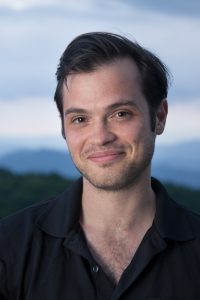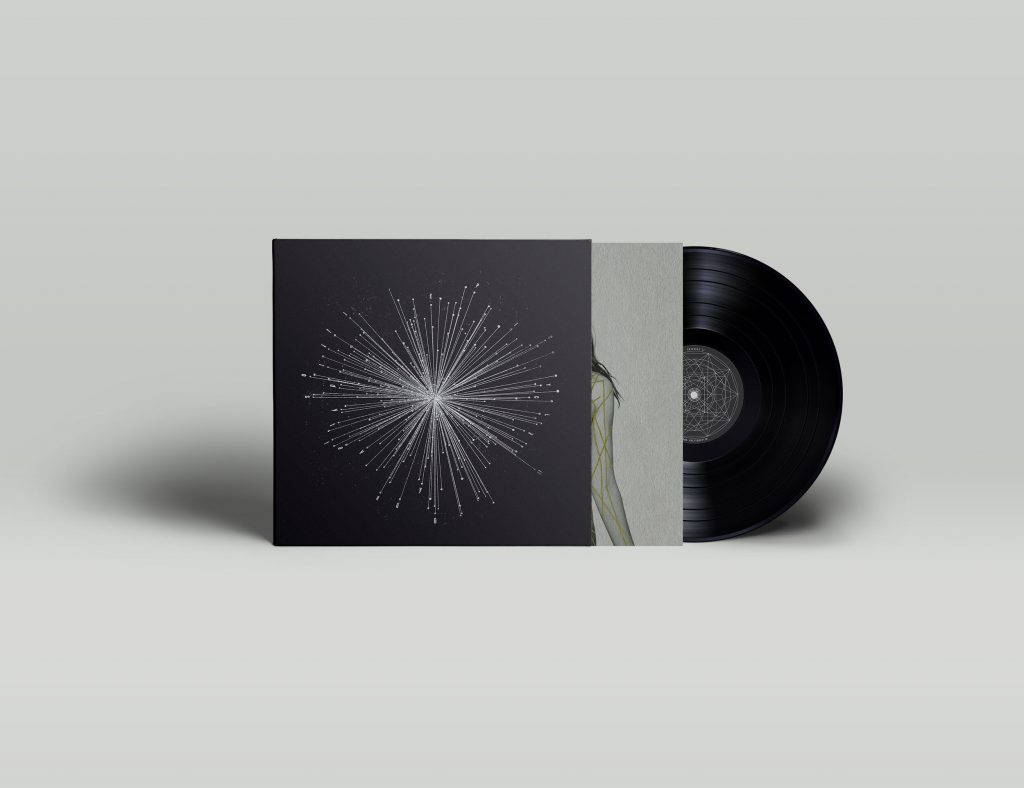By Daniel Ketter, special to the Sybaritic Singer
Many Americans growing up in the 1990’s were first introduced to Icelandic music through the powerful ballads of Björk or the foggy dream worlds of Sigur Rós. The country’s historical isolation has sharpened its connection with ancient folk traditions, such as epic mythological tales sung in rímur, fostering a unique sound world and rich musical landscape. I personally was imprinted as a teenager by the warm, magical epilogue, Avalon, from the Sigur Rós album Ágætis byrjun.
A new vista of this musical terrain, Gyda Valtysdottir’s newest album Epicycle II (released August 28, 2020, on DiaMond/Sono Luminus) is couched as a sequel to her 2017 album, Epicycle, conceptualized as “a map of [Valtysdottir’s] musical influences,” a poetic reference to Ptolemy’s celestial maps. Drawing on her eclectic background as co-founder of the minimalist electronic duo múm—who can forget their debut album Yesterday Was Dramatic – Today Is OK (2000)—and deep conservatory training as cellist/composer in Reykjavík, St. Petersburg, and Basel, Epicycle “recloaked” the classical canon in often improvised electroacoustic re-creations ranging from the Greek Seikilos Epitaph to works by Hildegard Von Bingen, Franz Schubert, Olivier Messiaen, Harry Partch, and George Crumb.
Each track is a collaboration with a composer Valtysdottir admires
If Epicycle presents a celestial map of Valtysdottir’s relationship to the classical canon, Epicycle II is a network map of the cellist’s musical relationships with luminaries of the living Icelandic music scene. Each track is a collaboration with a composer Valtysdottir admires as a musician and friend, either composed for her or improvised with her, and bears witness to a history of mutual influence and musical memories. Rather than speaking of musical style, goals, or structure to explain each track on the album Valtysdottir shares deeply personal stories of admiration, influence, and shared experiences.
Valtysdottir recounts that her life was changed when Skúli Sverrisson extended an invitation to her to play for the release show for his album, Napoli 23, in 2002, during her early work in the band múm. The impact of this early-career opportunity may speak to the opening position of Sverrisson’s Unfold, where muted strings and electronics slowly spiral upward in seemingly never-ending chains of rising suspensions, a Jacob’s ladder to György Ligeti’s L’escalier du diable.
Valtysdottir tells a beautiful and relatable story of her 11-year-old self distantly admiring a 13-year-old Ólöf Arnalds at string camp, later connecting in college where they discovered new musical treasures together. The simplicity of the message in Arnalds’s Safe to Love is a thematic banner for the album’s collection, a testament to “the space music offers love [. . .] to flow,” separating earnestly sung stanzas with an otherworldly folk cello improvisation.
The cello draws the listener into a shimmering phrygian drone world
Mikros by fellow cellist and composer Anna Thorvaldsdóttir offers a dark instrumental counterpoint to the previous tracks. Scurrying bow noises and flickering harmonics pull against a low droning cello C saturated with hyperreal overtones, introducing the cello and its formidable palate of sounds as a personality in itself weaving through the album. The meditation on the cello as object and inspiration continues with Morphogenesis by Úlfur Hansson, whose father built the cello Valtysdottir now uses. This work was the product of an improvisation between the two musicians: the magical changing thirds of Hansson’s slowly oscillating harmonic environment open space for Valtysdottir’s cello to draw the listener from a shimmering Phrygian drone world to a burgeoning climax.
Kjartan Sveinsson’s contribution, Liquidity, was also the product of a collaborative performance during the People Festival in Berlin 2019. Sveinsson was keyboardist for Sigur Rós, which achieved international acclaim in 1999 just as Valtysdottir was beginning her own career, performing with múm as an opener for their touring shows in Iceland. Inclusion of this work is an ode to their history of connection and collaboration.
A gentle, airy cello tone climbs upward towards the sun like Daedalus
Daníel Bjarnason’s Air to Breath features a stunning chordal quasi-ostinato supporting a cello solo that highlights the artist’s effortless virtuosity and the instrument’s natural affinity to the human voice. A gentle, airy cello tone and soothing vibrato slowly climb upward towards the sun like Daedalus, made all the more tragic by Valtysdottir’s meditation on her one-time relationship with the composer. The exploration of romantic themes is made more explicit in the following Evol Lamina, the product of improvisations done in Jónsi’s home in LA; beyond collaborating for this work, the vocalist for Sigur Rós also played a substantial role in the production of the album. The raw energy of the track’s deep bass and penchant for reversed tones inspired this listener to explore the track in reverse, revealing affectionate mumbling and repetition of “my baby” near what would be the track’s opening. The reverse of the track’s title as “animal love” did not go un-noticed.
The final track, Octo by María Huld Markan Sigfúsdóttir loops a haunting cello passacaglia, adding layer upon layer that expand outward to provide a tightly composed epilogue to the album’s musical journey.
Aside from the luminous tones, compelling variety of compositional styles, and spontaneous virtuosity that characterizes this set of works brought to life by Gyda Valtysdottir, contemplation of the shared history, depth of artistic collaboration, and beautiful concept of this album remains the inspiring touch point and the album’s shining heart. It’s an inspirational concept for a collaborative work of art with musical colleagues, neither too self-absorbed or effacing, celebrating the unique Icelandic music scene as a group of artists who support each other, work together, and make stunningly beautiful music. I’d be thrilled to see more collaborations like this, anytime.

Dan Ketter is a cellist, music theory nerd, educator, and new music enthusiast. As Co-Director and cellist for American Wild Ensemble, Dan has commissioned and performed over thirty new works inspired by American people, places and ideas. He is Assistant Professor of Cello at Missouri State University in Springfield, MO.

